
What Is Colic? How Do I Spot Colic Symptoms? Scripps Health
It's normal for babies to fuss and cry. Babies who have colic cry more than most babies, even though they're otherwise healthy. Other features of colic can include: Crying for no obvious reason. For example, if they're not hungry or don't need a diaper change. Crying around the same time each day.
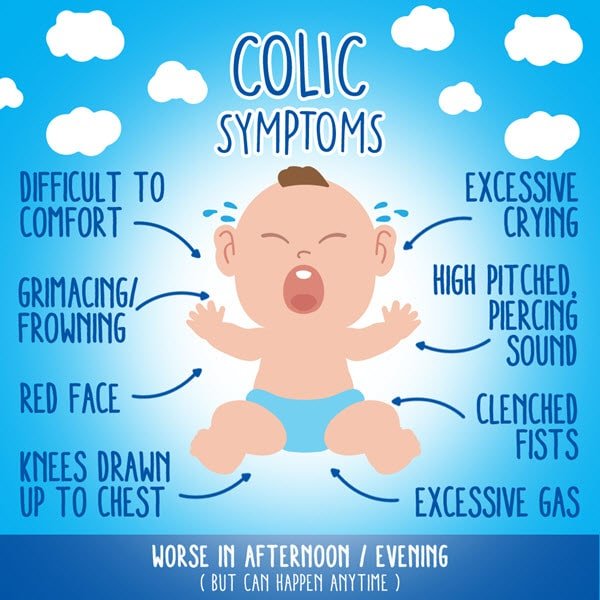
5 Best Baby Formulas for Colic (2023 Guide)
Colic in Babies by Colleen de Bellefonds Medically Reviewed by Marvin Resmovits, M.D. | June 21, 2021 Cara Slifka/Stocksy Got an infant who cries for hours and resists your every effort to soothe those tears? Read on for the signs of colic, the causes and remedies to get you through. In This Article What is colic? show all
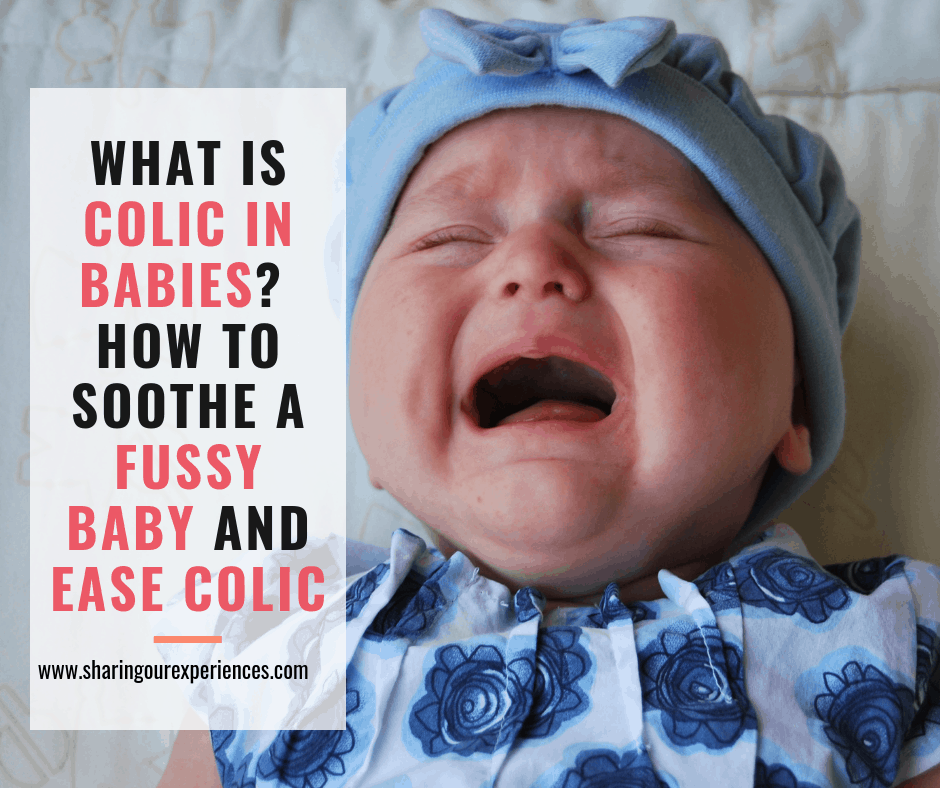
All about colicky babies What can you do to help
Many babies with colic have gas, but gas can be the result of crying — air is swallowed when a baby cries or nurses, and all the trapped air can make your baby feel uncomfortable. Digestive issues. This can include if your baby's digestive system is still underdeveloped or there is an imbalance of healthy bacteria in the digestive system.

Colic How Do I Know If My Baby Has Colic and How To Soothe Them Baby breastfeeding, Newborn
Infantile colic is a common condition causing abdominal discomfort in newborns during the first few weeks after birth. The etiology of colic is still unknown, as the studies conducted so far have been restricted due to inadequate blinding and conflicting or inconsistent results.
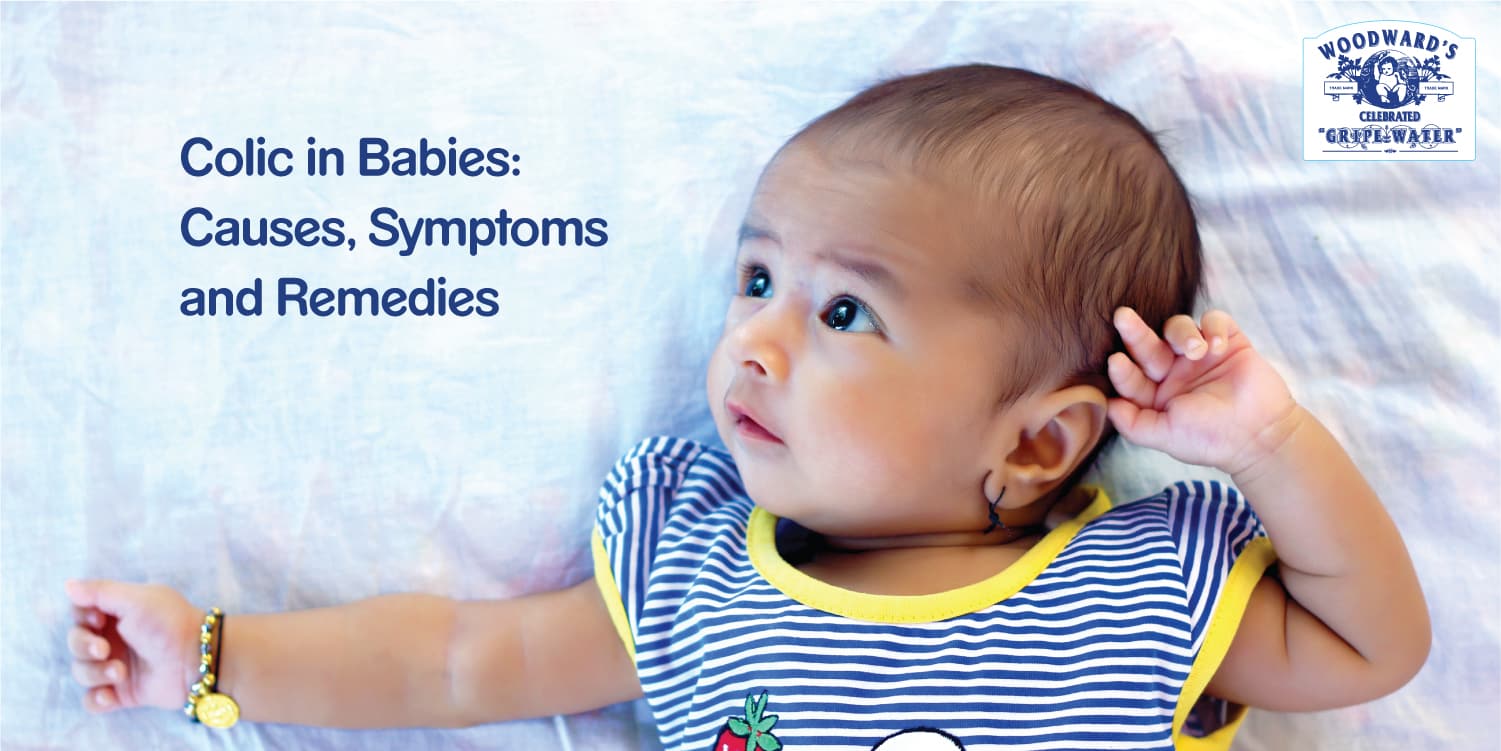
Colic in Babies Causes, Symptoms & Remedies Woodward's Gripe Water
Overview Colic is frequent, prolonged and intense crying or fussiness in a healthy infant. Colic can be particularly frustrating for parents because the baby's distress occurs for no apparent reason and no amount of consoling seems to bring any relief. These episodes often occur in the evening, when parents themselves are often tired.
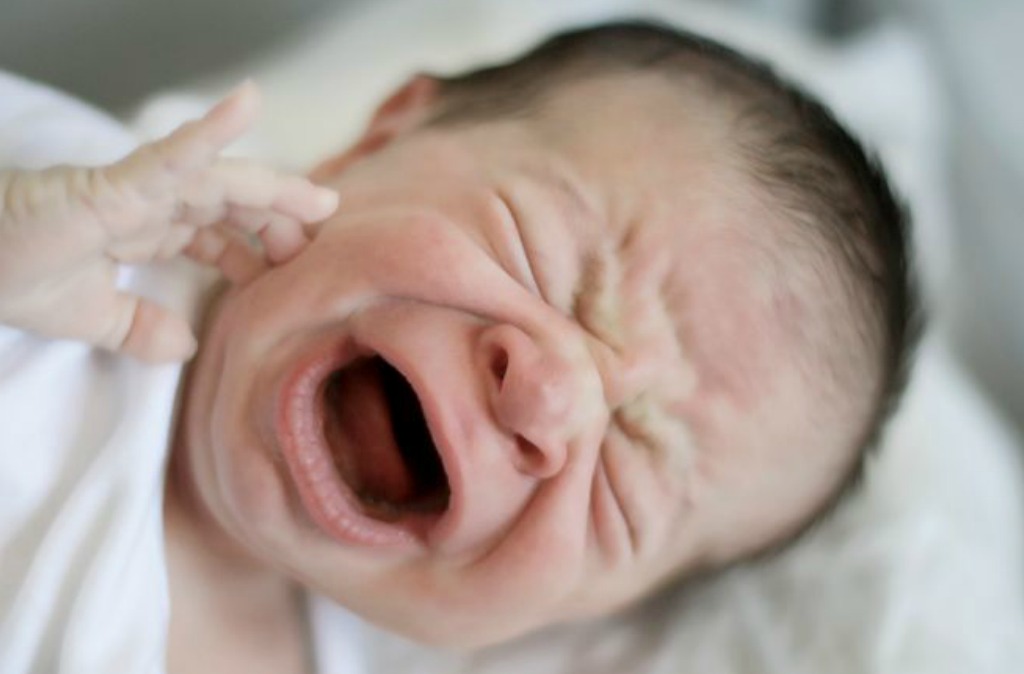
Colic What it is, How to handle it and Shaken Baby Syndrome in Malaysia Mother, Baby & Kids
Colic is when a healthy baby cries for a very long time, for no obvious reason. It is most common during the first 6 weeks of life. It usually goes away on its own by age 3 to 4 months. Up to 1 in 4 newborn babies may have it. Colic is defined as when a baby's crying: Lasts for more than 3 hours a day. Happens more than 3 days a week.

Learn 10 tips and traditional remedies to soothe a colicky baby
The motion and body contact will reassure them, even if their discomfort persists. Rock your baby, run the vacuum in the next room, or place them where they can hear the clothes dryer, a fan or a white-noise machine. Steady rhythmic motion and a calming sound may help them fall asleep. However, never place your child on top of the washer/dryer.
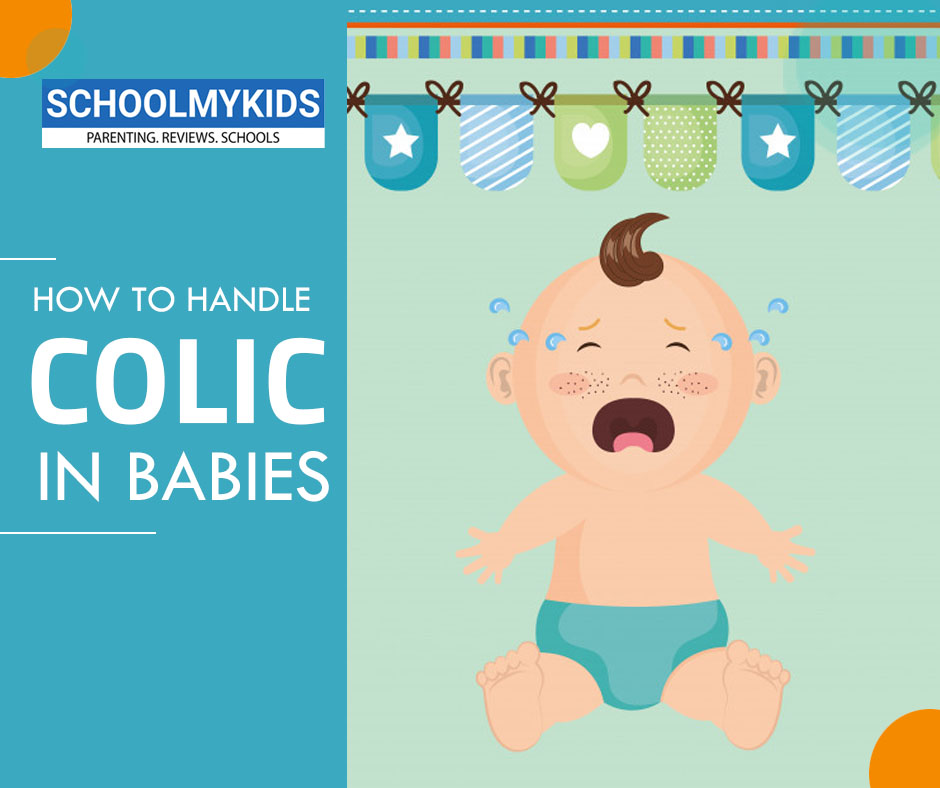
How to Treat Colic in Babies Signs, Symptoms & Treatment SchoolMyKids
Baby / Crying & Colic Colic in babies: What it is, how long it lasts, and what you can do Colic usually starts when a baby is about 2 weeks old, peaks around 6 weeks, and ends by 4 months. Though colic is common, the constant, excessive crying is hard to cope with.
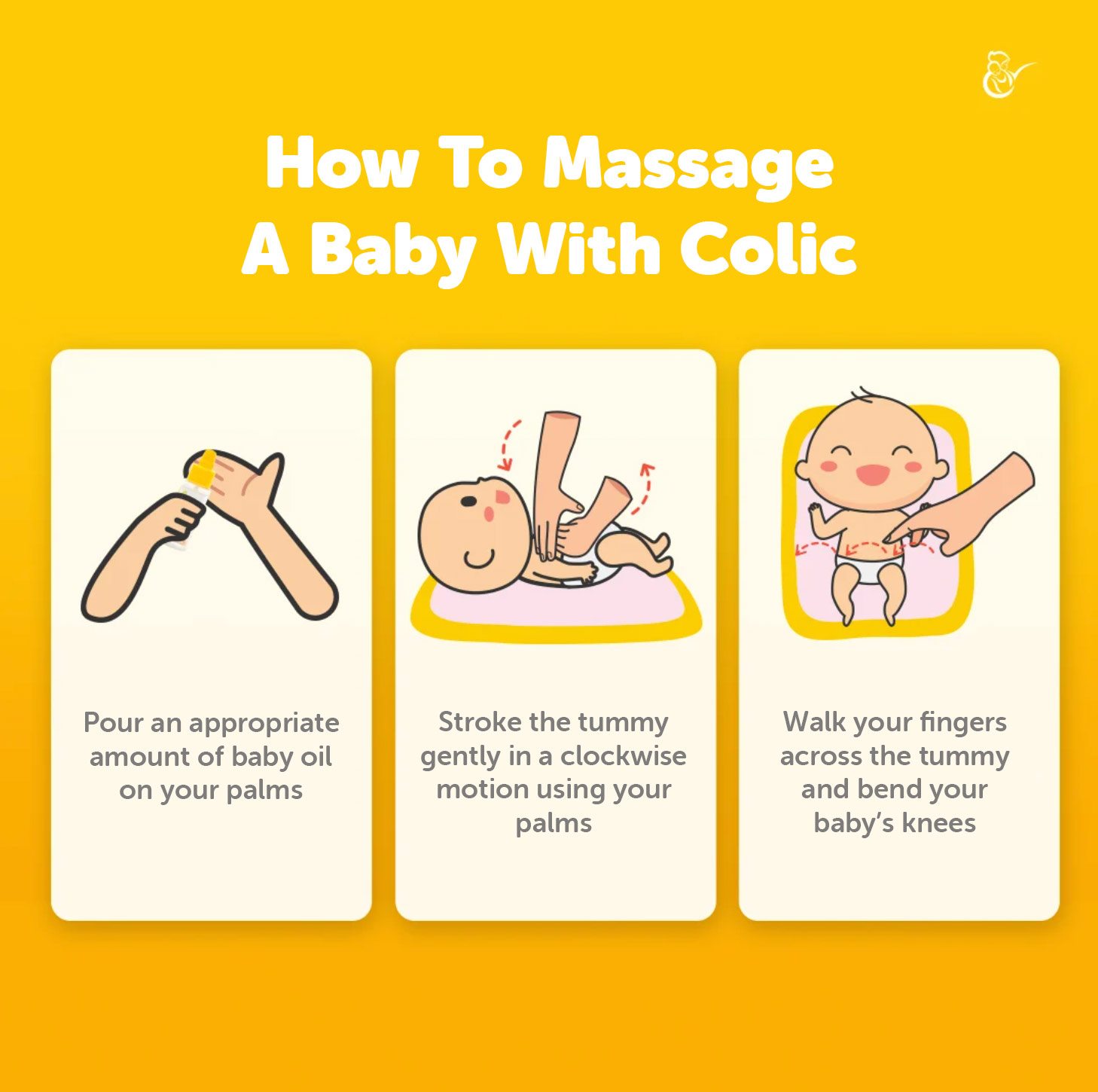
Signs Baby Has Colic And How To Relieve Colic in Babies
Colic means your otherwise healthy baby cries excessively for no apparent reason. Healthcare providers define colic as intense crying for more than three hours a day, at least three days a week, for more than three weeks. Often, there's nothing you can do to relieve your crying baby. All babies cry — it's the way they communicate their needs.

Pin on baby
Baby colic is frequent, intense, prolonged crying or fussiness in an otherwise completely healthy baby. The onset of colic is sudden and almost always takes parents by surprise. About 15 to 25% of babies have colic diagnosed - when experiencing colic, they'll cry more than they normally do, inconsolably and for no apparent reason..
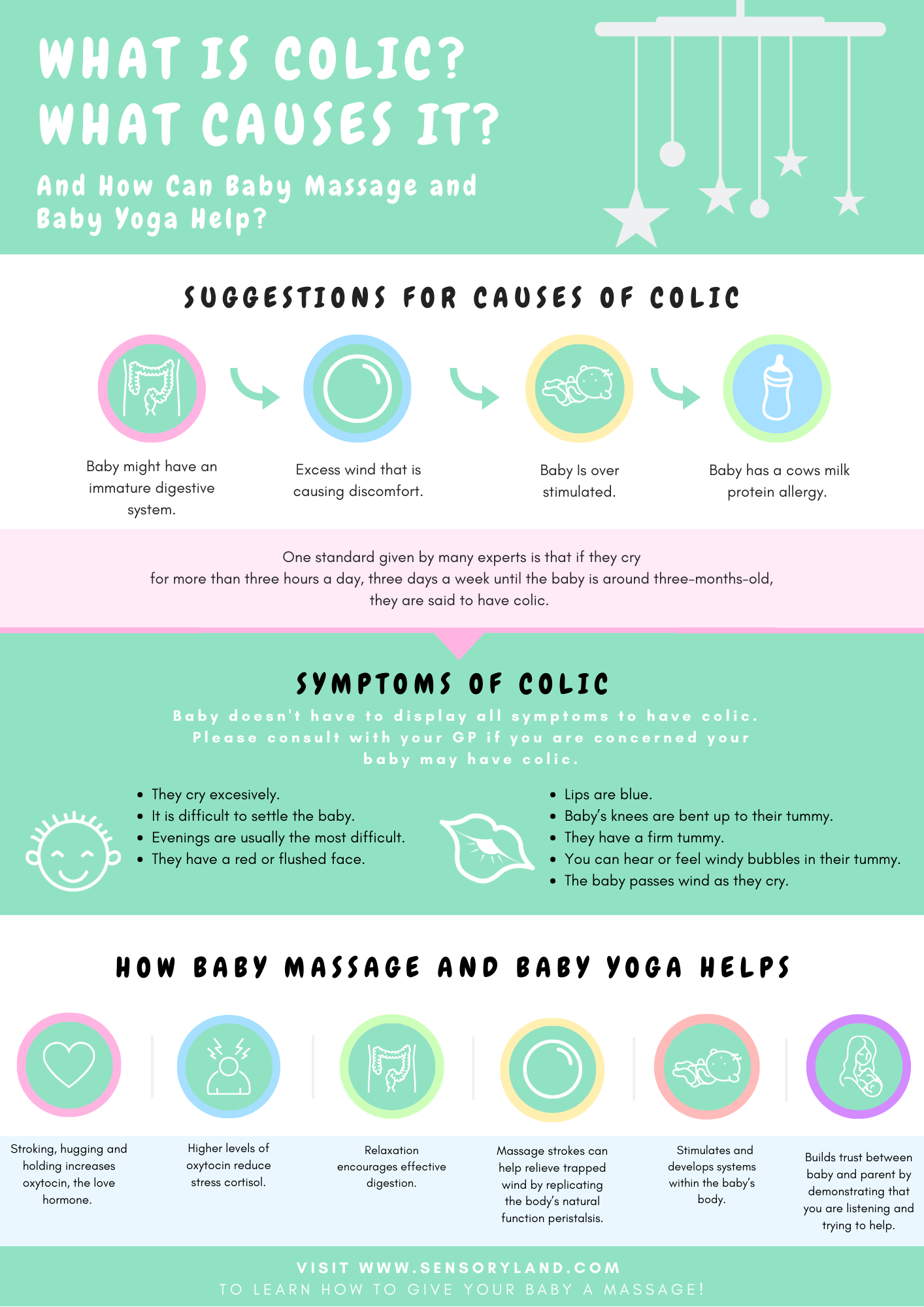
What Is Colic? What Causes It? And How Can Baby Massage help
Infantile colic is a benign process in which an infant has paroxysms of inconsolable crying for more than three hours per day, more than three days per week, for longer than three weeks. It.

Colic symptoms in babies Omega Pharmacy and Clinic
Fear, frustration, or excitement Inability to self-soothe Milk allergy Many health conditions can look like colic. If you're worried about your baby, your doctor can do a full exam to rule out.

Expert 1to1 Coaching for How to Solve Colic in Babies Colic baby, Parenting solutions, What
Colic is the word used to describe a condition when a healthy baby cries for more than three hours per day, more than three days per week, for three or more weeks, and is hard to console or comfort. With a colicky baby, the bouts of crying typically intensify and last as the day goes on, and can worsen in the evening, typically between 6 pm and.

Caring for a Baby With Colic (And Yourself) Dads Adventure
Colic is when a healthy baby cries for a very long time, for no obvious reason. It is most common during the first 6 weeks of life. It usually goes away on its own by age 3 to 4 months. Up to 1 in 4 newborn babies may have it. Colic is defined as when a baby's crying: Lasts for more than 3 hours a day. Happens more than 3 days a week.

What Does It Mean When Your Baby Has Colic Baby Viewer
Infant colic is a commonly reported phenomenon of excessive crying in infancy with an enigmatic and distressing character. Despite its frequent occurrence, little agreement has been reached on the definition, pathogenesis or the optimal management strategy for infant colic.

Colic in Babies Causes, Signs and Remedies YouTube
The quick facts are these: "Infantile colic" is the term that doctors use for excessive crying and fussing that has no obvious cause. To make a diagnosis, many use the "rule of three," which identifies a baby as colicky if he or she is "otherwise healthy and well-fed," but has fits of "irritability, fussiness, or crying" that.